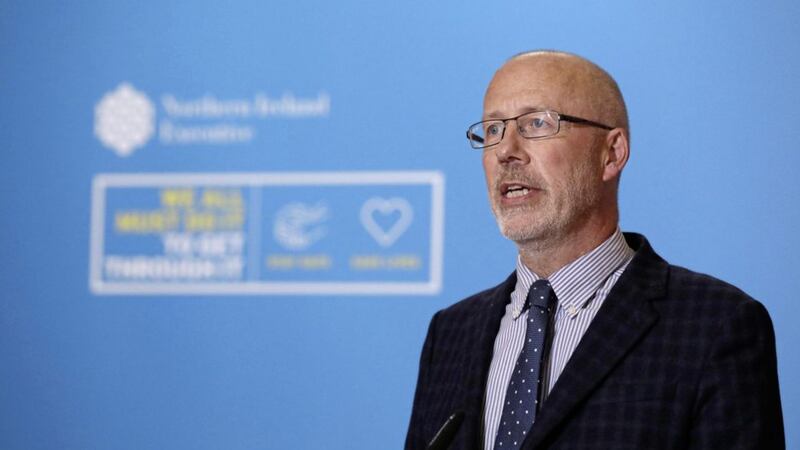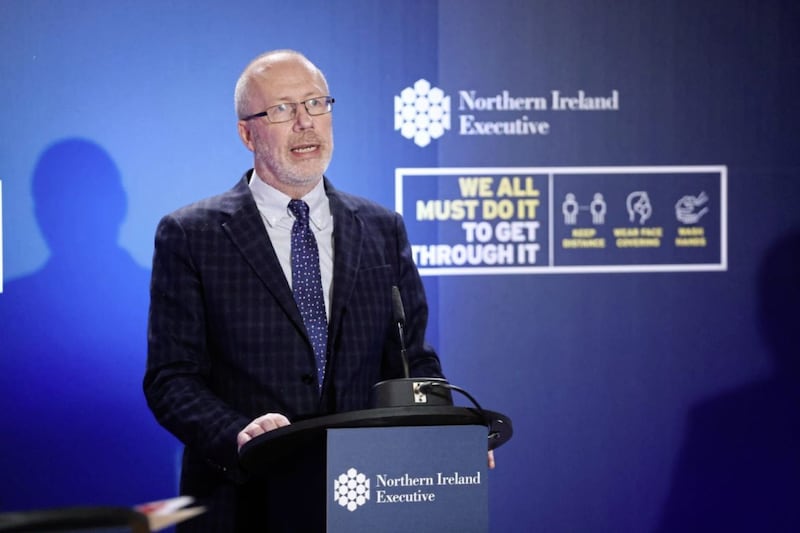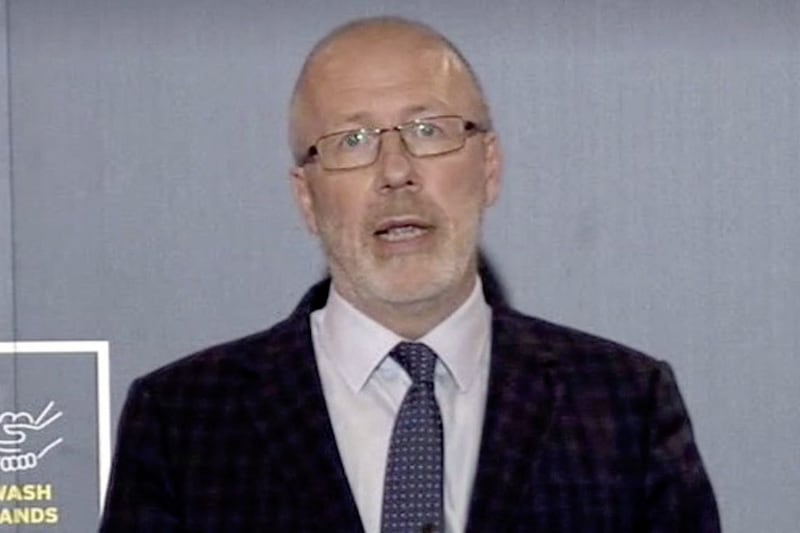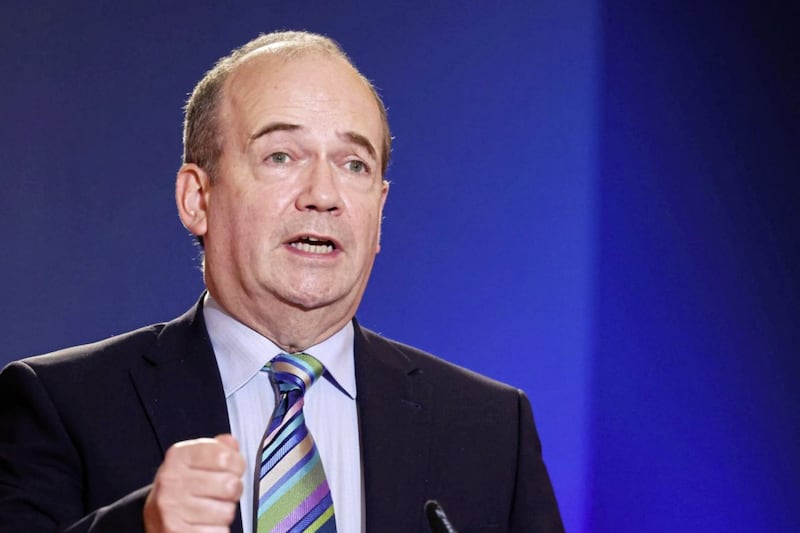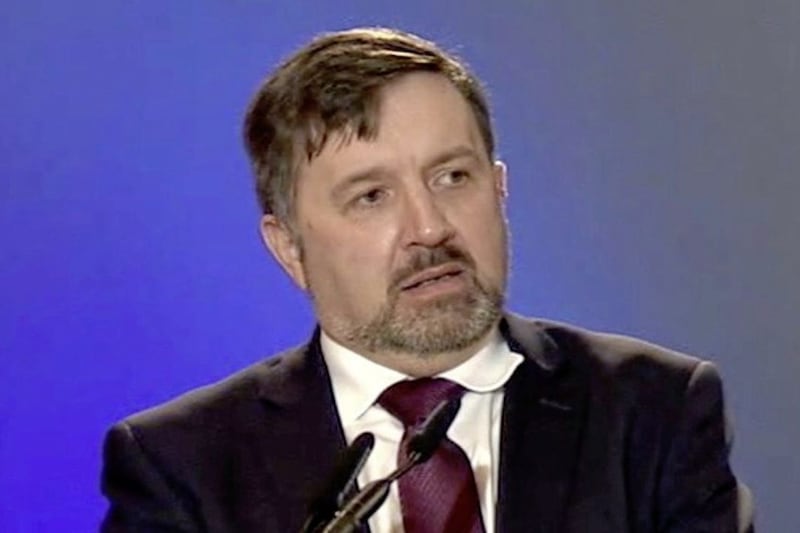HEALTH chiefs have defended a paper that informed Northern Ireland's four-week 'circuit breaker' following an outcry from business leaders.
The Department of Health document was released on Tuesday evening and included estimates of the impact of restrictions on various sectors on Covid infection rates, from hospitality and retail outlets to schools and church gatherings.
The aim is to bring the 'R' number - the average number of people an infected person passes the virus on to - below one. It is currently at around 1.4.
However, concerns were raised after the paper revealed that many of the estimates only suggested low to moderate impacts on infection rates - but a high economic impact on workers.
There was also criticism that other steps which could have had a greater impact on transmission, including the closure of churches (an estimated reduction of R by 0.1) - were not taken by the Executive.
Chief Scientific Advisor Ian Young said while some of the numbers might appear small, incremental reductions could make an "enormous difference".
But former DUP economy minister Simon Hamilton, who now heads up Belfast Chamber of Commerce, described the data as "shocking" and singled out the low impact of shutting hairdressers on reducing Covid cases.
Mr Hamilton tweeted: "When considering closing down close contact retailers like barbers and hairdressers, the 'evidence bank' says the impact on the R number is low at around 0.05 and that closing these businesses will 'disproportionately affect the poorest and women'."
He claimed that much of the evidence appeared to be "anecdotal" and posed "massive questions" for the executive.
Prof Young insisted that the the measures will have a cumulative effect in reducing the spread of the virus and called for people to look at broader evidence available.
During a media briefing on Tuesday, the chief scientist acknowledged that "people had been asking for some time" for the evidence that informs the advice he and Chief Medical Officer Dr Michael McMcBride gives to the health minister and Executive.
"There's is an enormous amount of evidence that goes into that, both from SAGE (Scientific Advisory Group for Emergencies), other scientific bodies and our own Northern Ireland experience...our aim is to put as much of the evidence as we can into the public domain."
Prof Young warned that information should be "considered in its totality" and criticised the focus on "one document, a summary document".
He told the BBC yesterday: "We don't have a lot of levers left to pull."
He added: "Even these small numbers, particularly when R is close to one, can make enormous difference. We need for this period all of the levers that we can get to achieve the impact that we need."
Hospitality Ulster chief executive Colin Neill said he now wanted to discuss the data with health minister Robin Swann to "drill down" into the detail.
"We feel like our industry has been vilified, but now when the evidence is published, it clearly states that the closure of the hospitality sector will have 0.1-0.2 impact on the R number and that the lockdown has been brought about to ensure behavioural and policy compliance in other areas.
“We recognise that people are doing a really tough job and that each risk removed helps to bring down the R number to below 1, but this is a deeply worrying development and we must now seek clarity from the health minister about the formula behind the numbers and work with the Executive to develop a plan for reopening the sector now that it has been presented that hospitality is not the problem.”
Health minister Robin Swann later said he was "deeply worried about the economic consequences of the pandemic", but insisted that "sitting back and letting Covid rip unchecked through our community would have been a total abdication of responsibility".
"Restricting human contacts is a proven way of fighting back at Covid-19," he said.
"If we are not going for a full lockdown then restrictions have to be targeted, however complicated that may be, because I have yet to see any real or feasible alternatives to the action that we are now taking."
